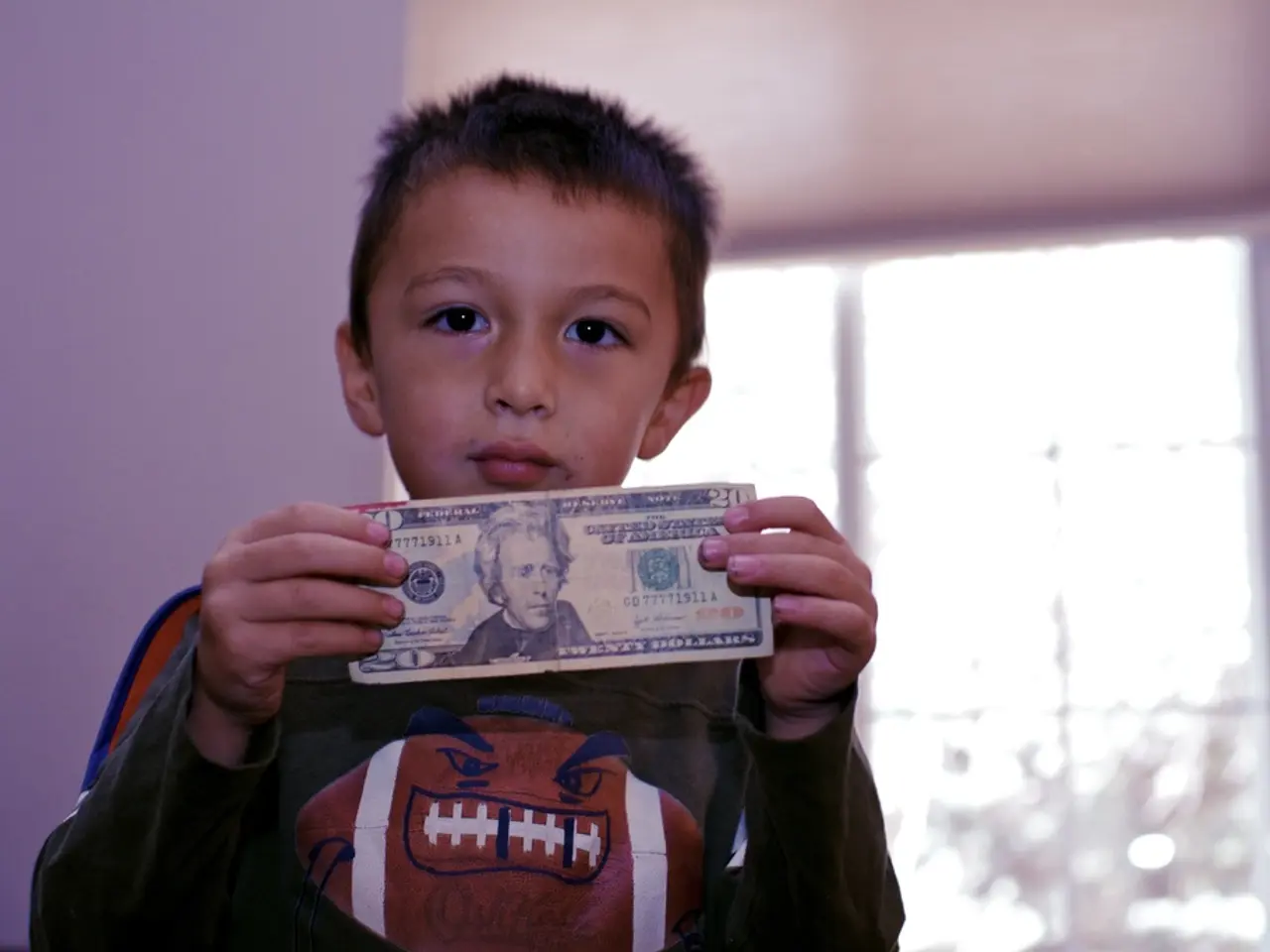Forty consecutive weekly payments of $50 transformed the lives of adolescents, eliminating the need for conditions or obligations.
A groundbreaking study in New Orleans, known as the $50 Study, has provided high school students with $50 each week for 40 weeks, without any conditions. The study, which has now expanded to other schools in New Orleans and Indianapolis, aims to understand the impact of unconditional cash transfers on young people's financial capabilities, school attendance, and academic performance.
Financial Capability and Savings
The study has shown promising results in terms of financial capability. Students who received the cash payments ended the study, on average, with $300 saved away - a 15% savings rate, triple the national average for American adults. This indicates that the students developed stronger long-term planning skills and familiarity with financial products.
School Attendance
The study also suggests a positive impact on school attendance. Students receiving cash were slightly more likely to attend school than those who did not receive the payments. Specifically, students in the treatment group attended 1.23 more days of school, on average, compared to the control group.
Academic Performance
However, there was no measurable difference in academic performance between the treatment group and control group. Despite this, the study's findings indicate that reducing financial stress and improving attendance can contribute to a positive learning environment, which may indirectly improve academic performance over time.
Usage of Funds
Participants used the money for essential needs like food, transportation, college applications, driver's education, and extracurricular activities. Some students also used the money for leisure activities, reflecting personal priorities and aspirations.
Real-life Impact
Vernell Cheneau III, a former student, struggled for months to find part-time work after receiving the $50. However, he recalled what he learned from the study: money goes fast, especially if it's free. Cheneau has since learned the full cost of being an adult in America and has been trying to convince friends and family to support Universal Basic Income (UBI).
Future Plans
The study will be piloted next year in Washington, D.C., with 40 high schoolers, and talks are ongoing to take the study to neighboring Texas. The city of New Orleans has invested $1 million to bankroll another extension of the study, as part of an economic mobility initiative that taps federal Covid relief funding.
In conclusion, the $50 Study demonstrates that unconditional cash transfers to teenagers can reduce financial stress and improve attendance and money management skills, which are important for future well-being, even if immediate academic scores do not change. The study's ongoing expansion to other cities will further examine these outcomes and provide valuable insights into the impact of UBI on young people.
References
[1] The $50 Study: A Cash Transfer Program for High School Students in New Orleans. (2022). Retrieved from https://www.rootedschool.org/the-50-study
[2] The $50 Study: Unconditional Cash Transfers for High School Students. (2022). Retrieved from https://www.pewtrusts.org/en/research-and-analysis/articles/2022/03/30/the-50-study-unconditional-cash-transfers-for-high-school-students
- The $50 Study demonstrates the potential of unconditional cash transfers to enhance education and personal-finance skills, as students who received the payments achieved a 15% savings rate, which is triple the national average for American adults, and showed improved financial capability.
- The study also suggests that reducing financial stress and improving school attendance through unconditional cash transfers could create a positive learning environment, thereby indirectly improving academic performance over time.
- Furthermore, the findings of the $50 Study indicate that innovations in education-and-self-development, such as charter schools and universal basic income (UBI), may play a significant role in addressing inequality by addressing financial stress and promoting financial literacy among young people.




